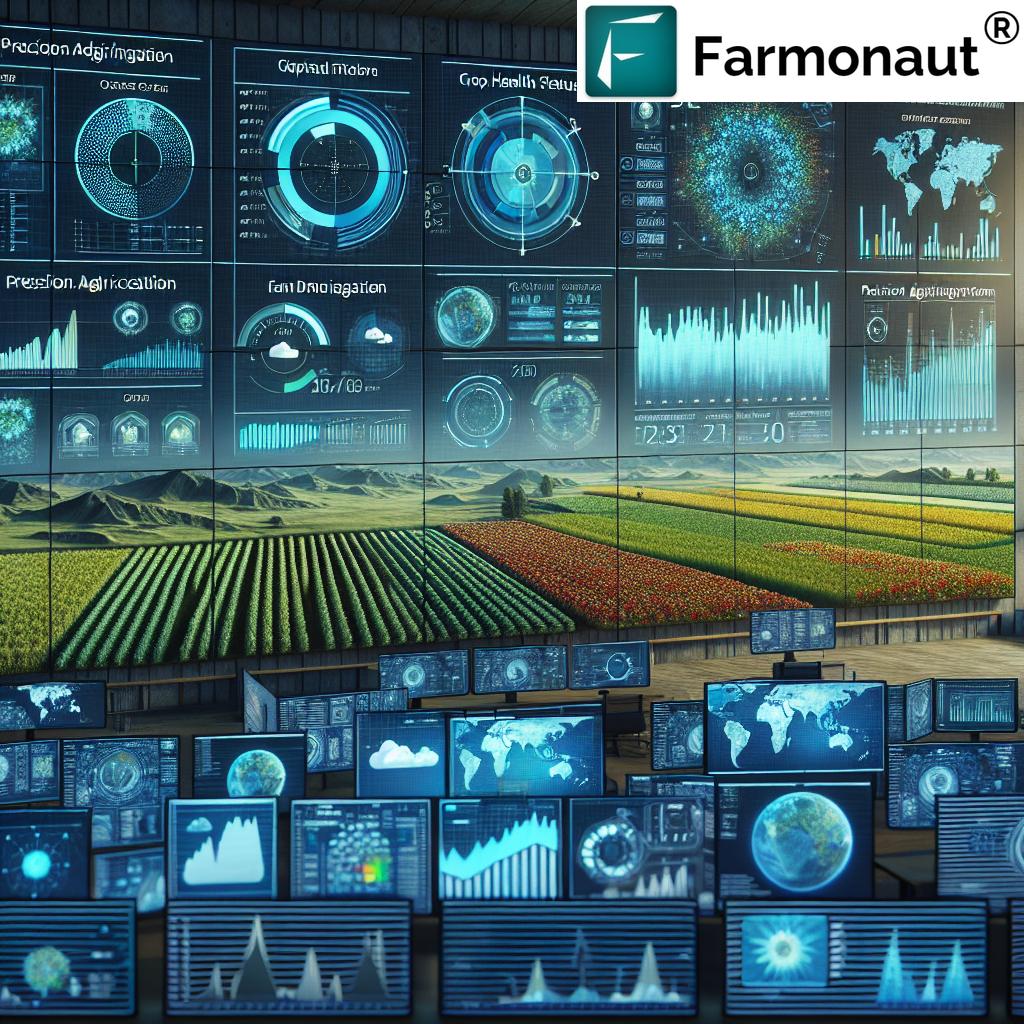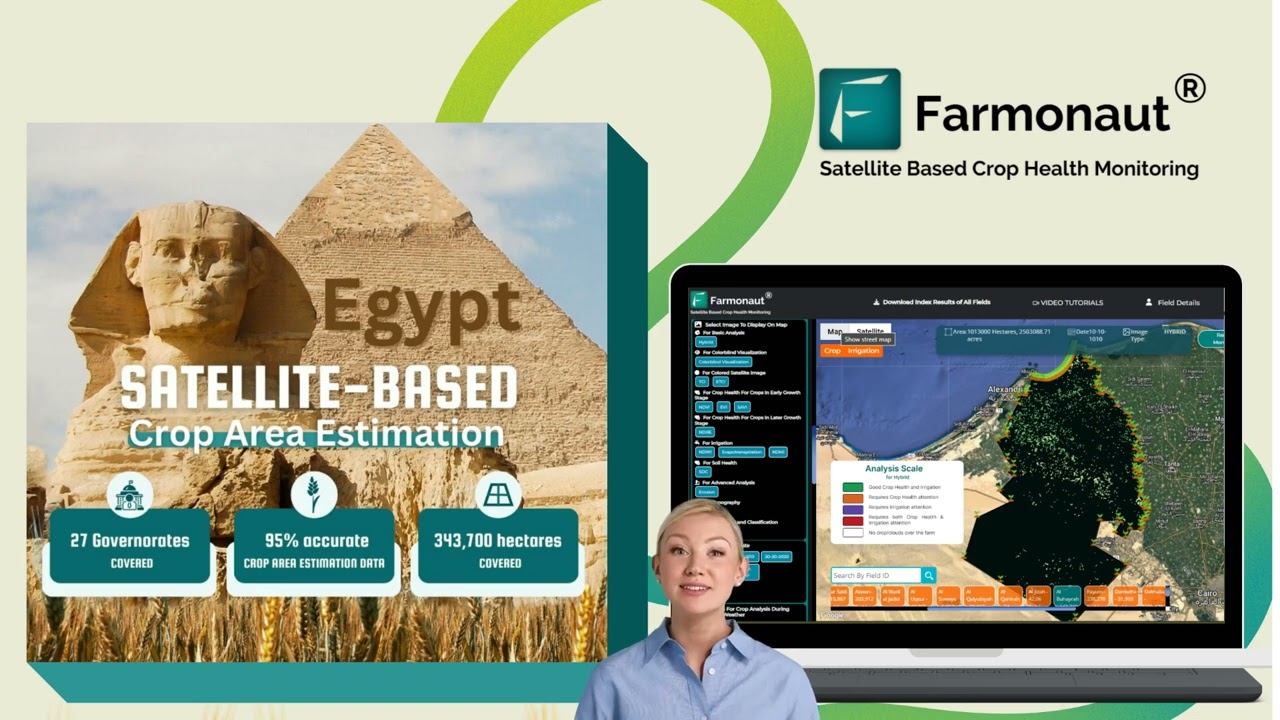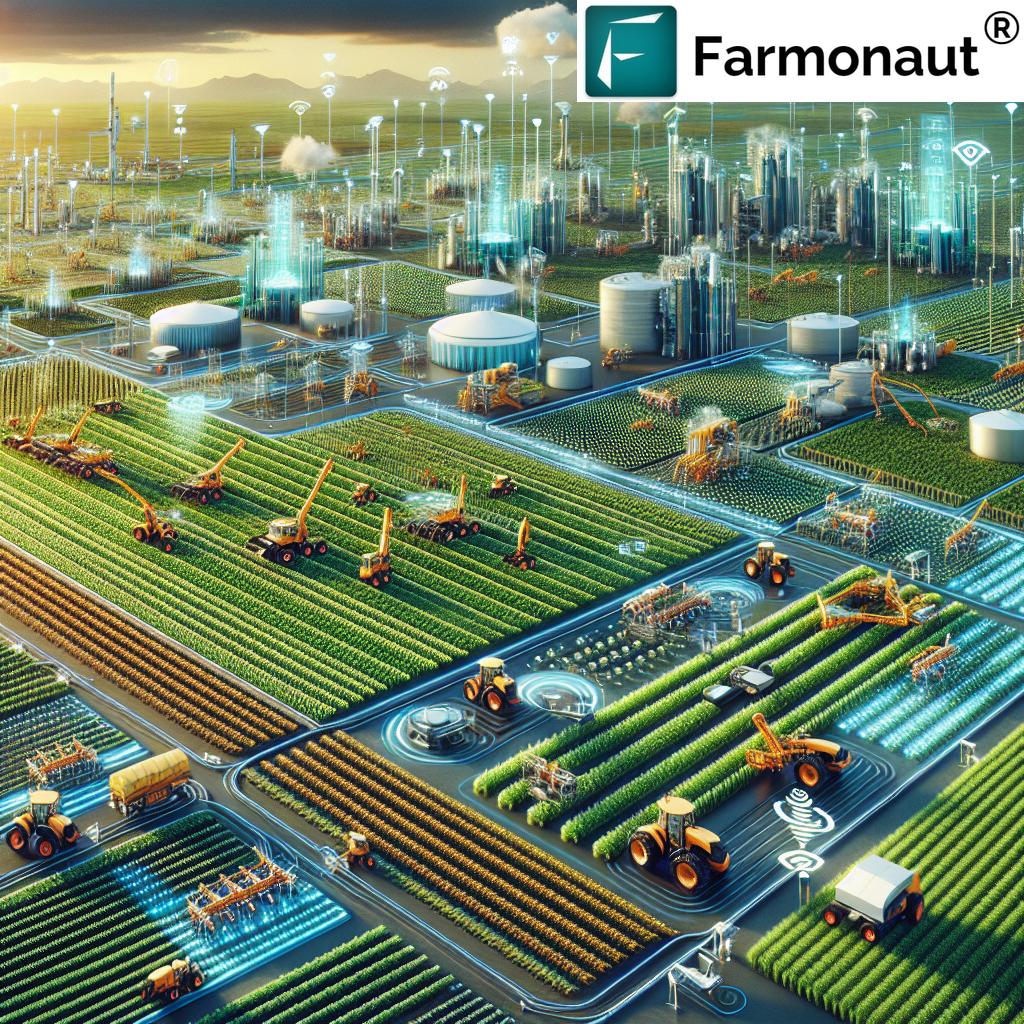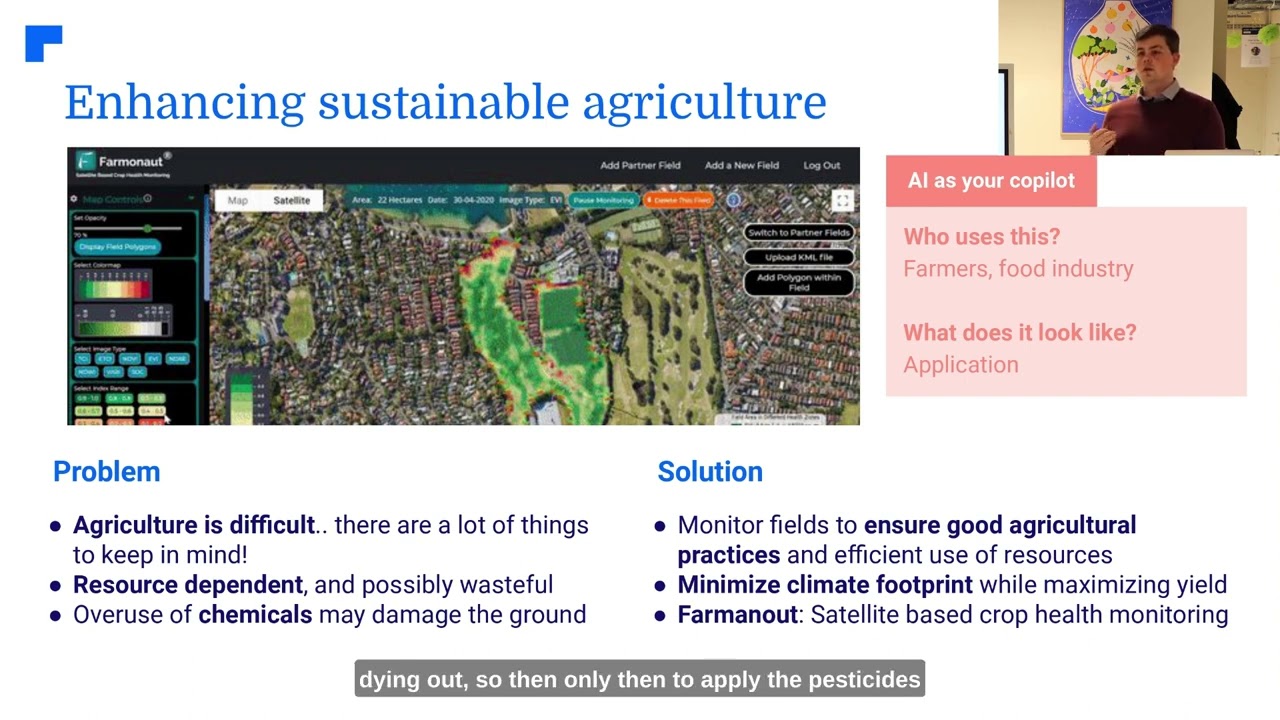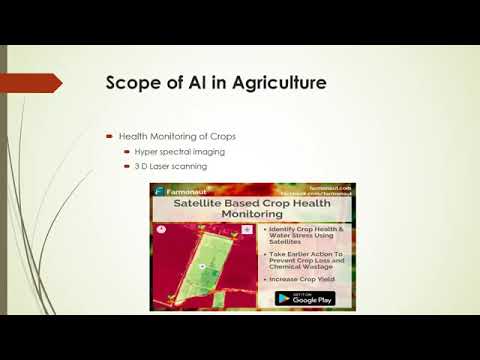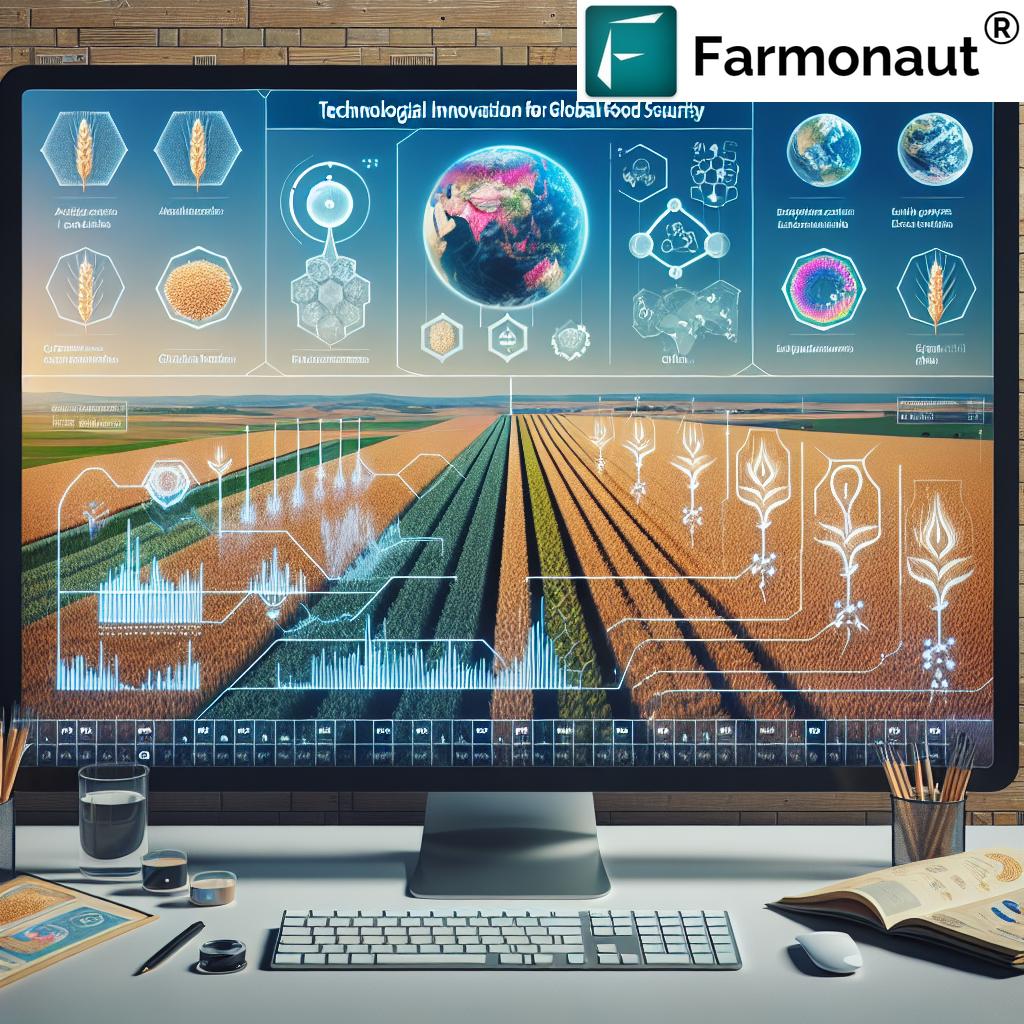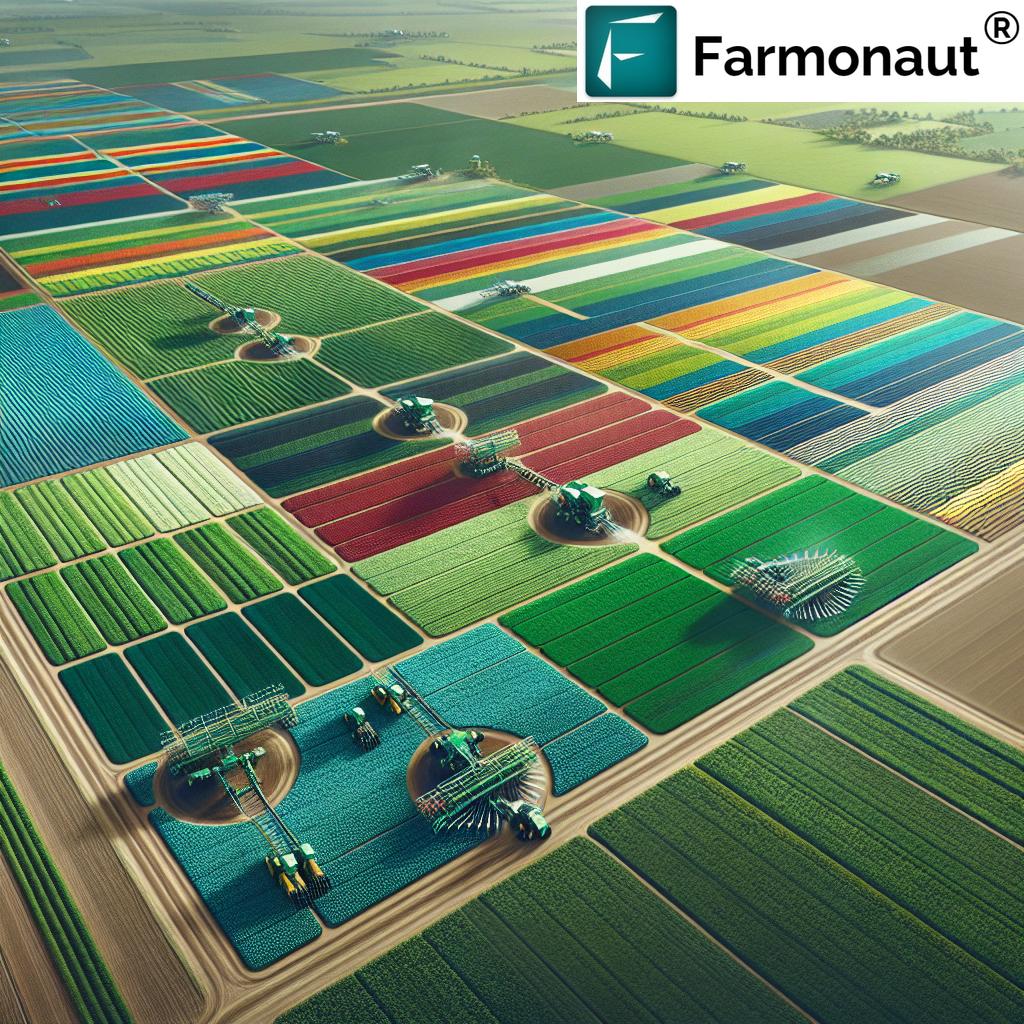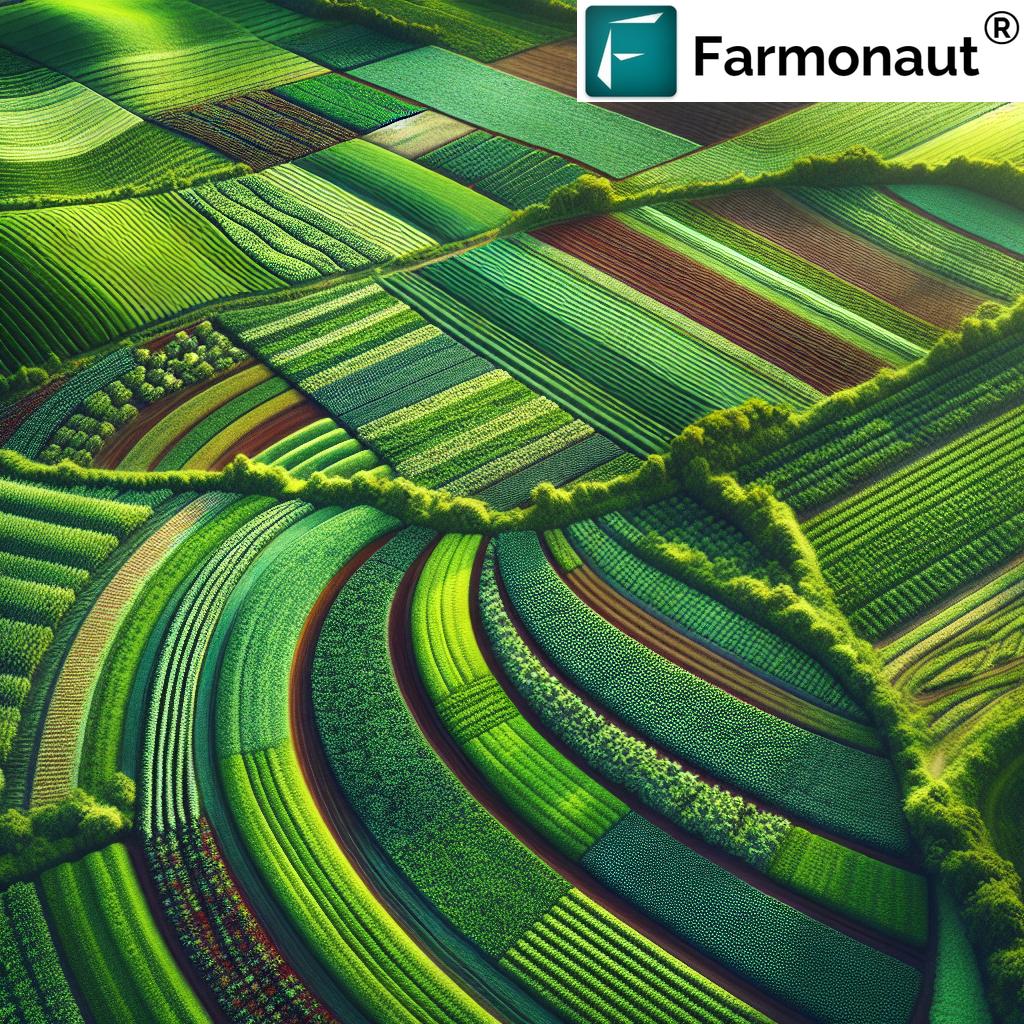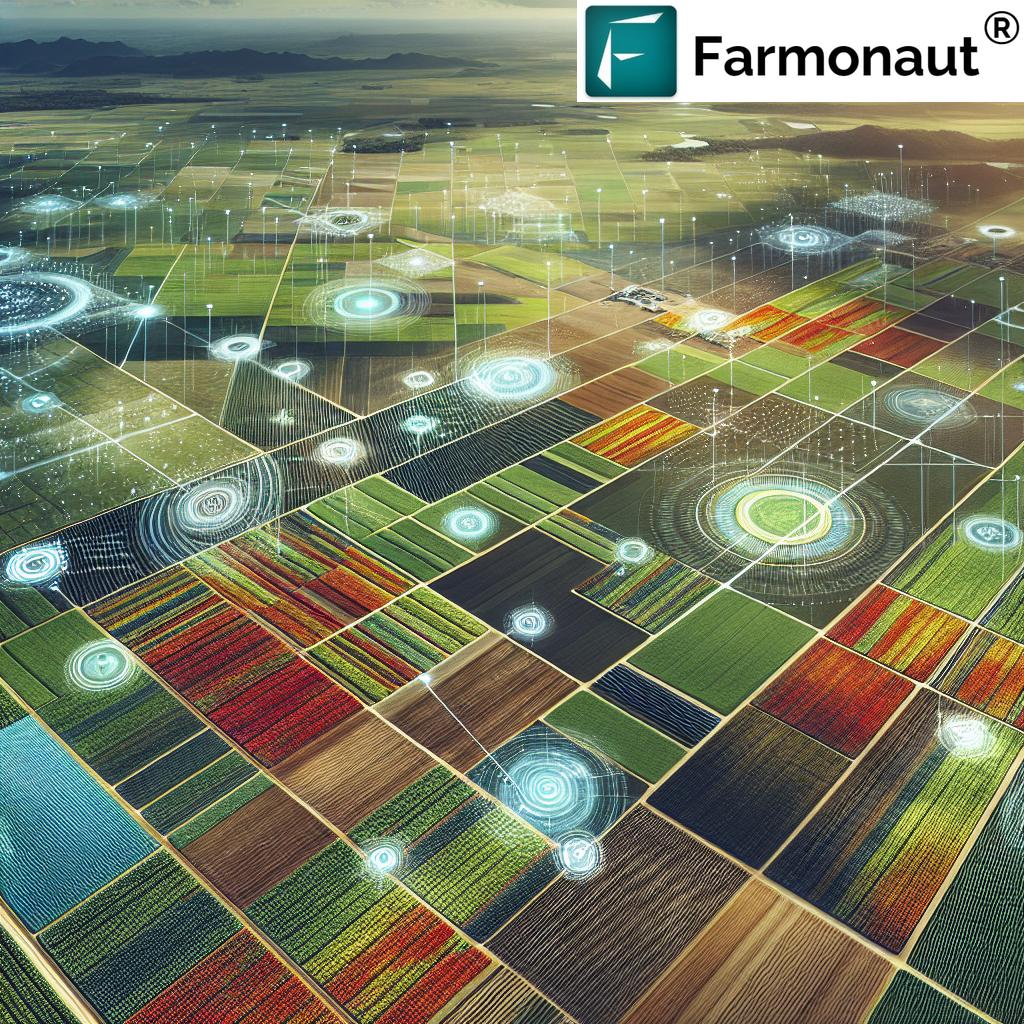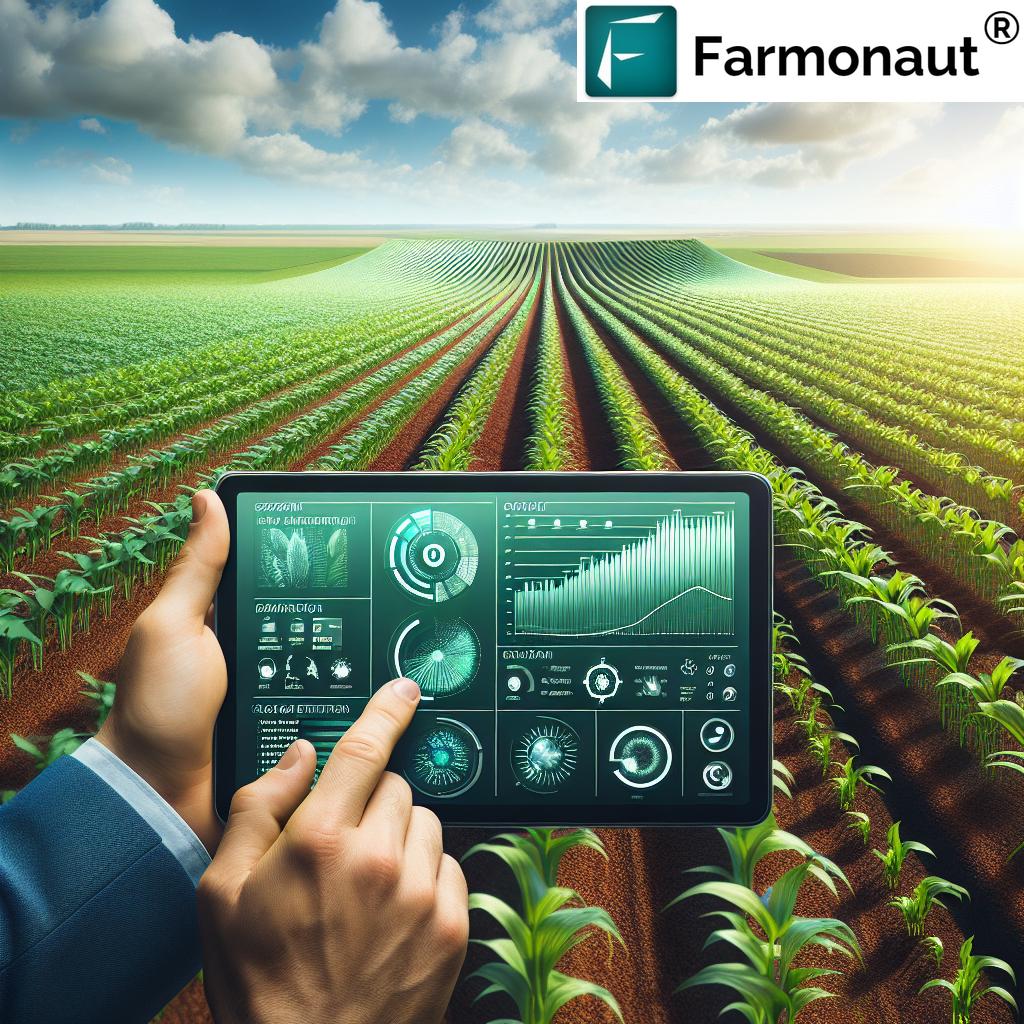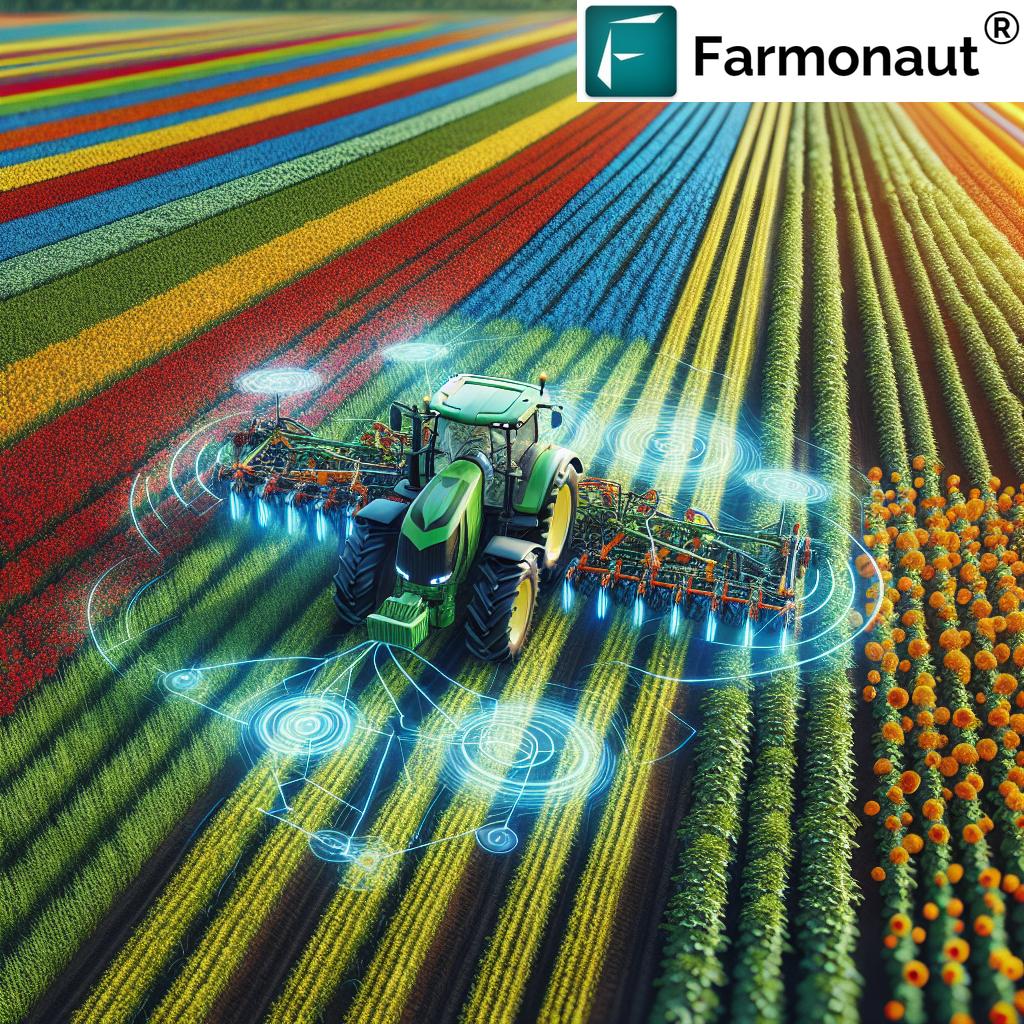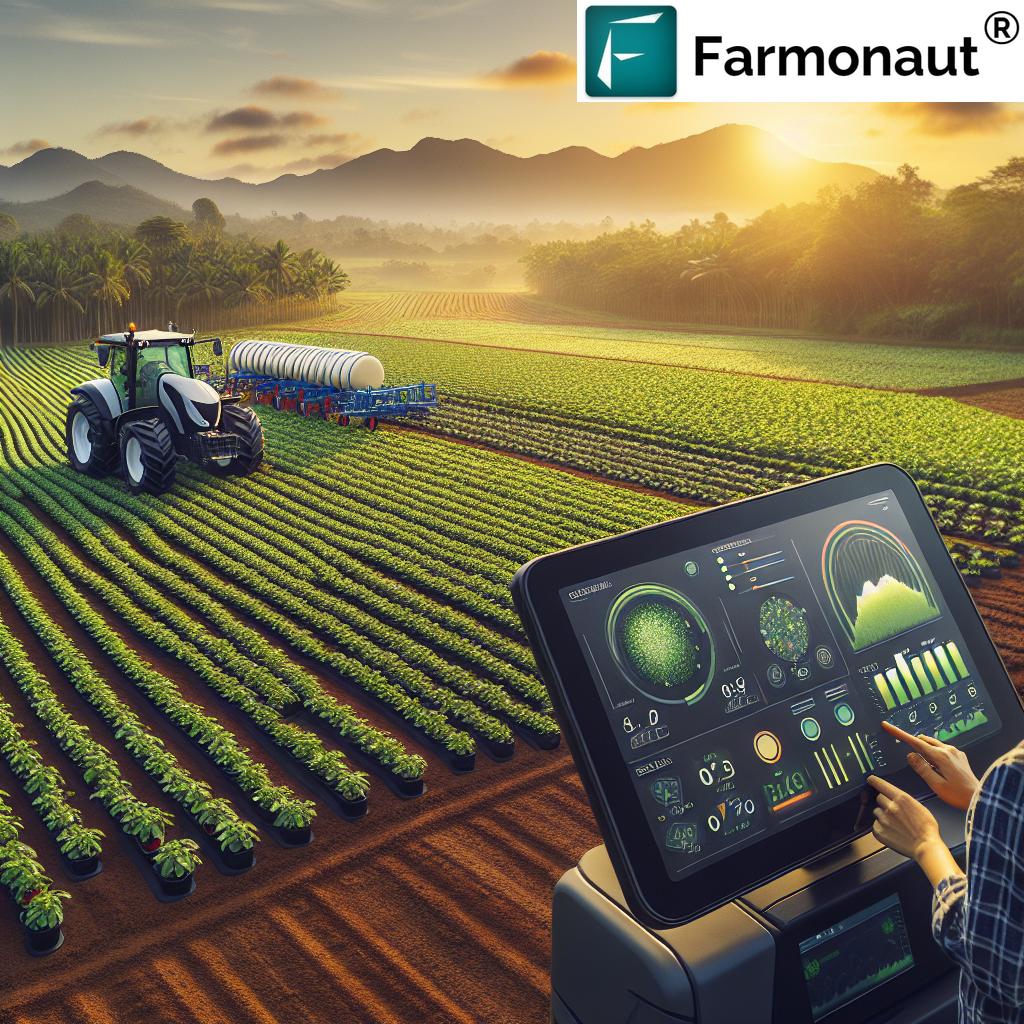Smart Farming Software: Boost Yields Fast With 7 Secrets!
“Smart farming software can increase crop yields by up to 30% using AI-driven data analysis and precision management.”
Introduction: The Smart Farming Revolution
In today’s rapidly evolving agricultural landscape, smart farming software stands at the forefront, revolutionizing the way we approach farming, crop management, and sustainability. By integrating advanced technologies such as AI, IoT, and data analytics into our fields, technology is enabling us—farmers, agribusinesses, and agricultural decision makers—to work smarter, not just harder. This transformation is more than an upgrade; it’s a paradigm shift, allowing us to optimize resources, improve efficiency, and boost yields on a global scale.
Whether you’re a smallholder farmer or part of a large-scale agribusiness, understanding the secrets behind this new era of precision agriculture is crucial. With the right tools, we can not only drive higher productivity and profitability but also contribute to environmental sustainability and global food security. Let’s dive deep into how smart farming software, paired with cutting-edge technologies, is reshaping agriculture and discover seven game-changing secrets that can catapult your farm’s performance.
7 Secrets to Boosting Yields With Smart Farming Software
The intersection of software, data, and farming is unlocking unprecedented opportunities in agriculture. By leveraging actionable agricultural data management, AI, and IoT, here are the seven secrets to quickly boosting farm yields:
- Satellite-Based Crop Health Monitoring: Using satellite imagery, smart platforms can remotely monitor crop health, soil moisture, and growth patterns—empowering us to identify stress or diseases early and deploy precision interventions.
- AI-Driven Decision Support: Artificial intelligence and machine learning algorithms process vast amounts of agricultural data to recommend optimal practices, predict yields, and detect pest or disease outbreaks before they spread.
- IoT-Enabled Real-Time Monitoring: With sensors, drones, and smart cameras, IoT in agriculture fuels high-frequency real-time monitoring, providing a live picture of weather, soil conditions, and crop status across your fields.
- Resource Optimization with Automation: Automated machinery—including robotic harvesters, irrigation systems, and smart tractors—streamlines labor-intensive tasks, increases operational efficiency, and reduces costs.
- Data-Driven Resource Management: Farm management software analyses everything from soil health to weather forecasts and fleet logistics, so we can optimize input use, reduce wastage, and maximize output.
- Blockchain-Based Traceability: Modern platforms are introducing blockchain for product traceability, ensuring crop origins and journeys remain secure, transparent, and fraud-resistant.
- Sustainable Operations with Carbon Footprinting: By tracking carbon emissions, smart platforms enable sustainable agriculture—helping us reduce our environmental footprint, comply with new regulations, and appeal to eco-conscious consumers.
Adopting these secrets doesn’t just enhance yields—it transforms how we farm, manage risk, and build a resilient food system for future generations.
Why Now is the Time for Precision Farming?
Global food demands are skyrocketing, while concerns over environmental sustainability, resource depletion, and labor shortages intensify. Smart farming bridges this gap by:
- Automating labor-heavy operations with minimal human intervention.
- Enabling data-driven decisions that optimize resource use and input timing.
- Leveraging IoT devices and cloud-based analytics for rapid, precise farm management.
Key Technologies Powering Smart Farming
To fully unlock these yield-boosting secrets, let’s explore the technology stack making modern agriculture smarter, efficient, and more sustainable. These core technologies revolutionize how farms gather, analyze, and act on information:
1. Internet of Things (IoT)
- Sensors & Devices: IoT sensors monitor soil moisture, temperature, and crop health. Drones and cameras collect real-time data, transmitted to centralized systems for precise analysis.
- Real-Time Monitoring: Immediate detection of irregularities (water stress, diseases, pest outbreaks) means timely interventions, reducing losses and optimizing resource use.
2. Artificial Intelligence (AI) & Machine Learning
- AI in farming enables advanced prediction and analytics, using huge amounts of data to identify patterns, recommend optimal practices, and detect diseases/pests with higher accuracy.
- Machine learning models continuously improve, learning from new data to deliver better recommendations over time.
3. Robotics and Automation in Agriculture
- Automated machinery (tractors, robotic harvesters) performs planting, irrigation, and harvesting tasks—reducing labor costs and increasing operational efficiency.
- Robotics offer a scalable solution for precision agriculture—especially invaluable during labor shortages or for large-scale operations.
4. Data Management & Cloud Computing
- Cloud platforms securely store agricultural data, power collaborative analytics, and ensure informed decision-making by leveraging centralized data.
- Farms, researchers, and extension agencies can collaborate efficiently through shared information, driving collective progress.
“Over 60% of modern farms now use advanced crop management software to optimize planting and harvesting decisions.”
Unifying These Technologies: Centralized Farm Management
When IoT, AI, data management, and automation work in concert, we get centralized, actionable insights for total farm oversight. Using a farm management software platform, all stakeholders—from farmers to agronomists—access relevant analytics, monitor ongoing processes, and deploy targeted measures in seconds.
Tools like real-time crop monitoring systems and integrated apps make this power accessible even from a mobile phone, democratizing precision agriculture for farms of all sizes.
Farmonaut: Pioneering Affordable and Accessible Smart Farming
As one of the world’s most forward-thinking agricultural technology innovators, Farmonaut offers a suite of powerful solutions aimed at making precision agriculture affordable and accessible to every farmer, regardless of scale or location.
Farmonaut’s ecosystem is built on robust pillars that directly support productivity, sustainability, and cost-effectiveness:
- Satellite-Based Crop & Soil Monitoring: Farmonaut utilizes multispectral satellite imagery to assess crop health (NDVI), soil moisture, and key growth metrics. This enables real-time, precise resource management and swift response to emerging issues.
- Jeevn AI Advisory System: The platform delivers customizable, AI-driven farm management strategies that blend weather data, satellite insights, and localized agronomic advice—directly into farmers’ hands.
- Blockchain-Based Product Traceability: For those who need transparency and security, Farmonaut’s blockchain system tracks crop origins, movements, and certifications—ensuring safe, verifiable food and fiber supply chains.
- Fleet & Resource Management: Farmers and agribusinesses can coordinate vehicle and machinery operations more efficiently (see Fleet Management Tools), reducing costs and improving overall crop cycle logistics.
- Carbon Footprinting: Farmonaut offers a detailed real-time carbon tracking tool (Carbon Footprint Page), helping us measure, manage, and reduce emissions for greener, more sustainable agriculture.
The Farmonaut platform is accessible via Android, iOS, web app, and a robust API (API access), making it a global solution for modern crop management and data-driven farming.
For developers and enterprises looking to build on Farmonaut’s data: Explore the comprehensive API Developer Documentation for seamless integration.
Tailored packages exist for individual farmers, cooperatives, agribusinesses, governments, financial institutions, and corporate clients—with subscription options sized to fit any scale or budget.
Farmonaut’s Value Propositions at a Glance:
- Cost-Effective Precision Agriculture: Real-time satellite monitoring available at a fraction of traditional hardware costs.
- Increased Farm Productivity: Informed decisions on irrigation, fertilizer, and pest management that directly enhance yields.
- Sustainability: Tools for carbon reduction, transparent traceability, and efficient resource use.
- Access to Financing: Satellite-based verification improves crop loans and insurance by reducing fraud and giving financial institutions reliable data.
- Transparency and Supply Chain Trust: Blockchain-powered product traceability reassures buyers and consumers of crop origin and journey.
- Scalable Platform: From a single farm to government-level monitoring, Farmonaut adjusts as your operations grow.
Need detailed crop plantation, forestry, or advisory support?
Learn more here.
Feature Comparison: Leading Smart Farming Software
Choosing the right farm management software impacts not only productivity but also long-term sustainability and cost efficiency. Here’s a comparative overview of top solutions, including Farmonaut, to guide decision-making:
| Software Name | Core Features | Estimated Yield Improvement (%) | User-Friendliness (1-5) |
Cost Efficiency ($/hectare/year) |
Sustainability Impact (CO2 reduction %) |
|---|---|---|---|---|---|
| Farmonaut | Satellite Monitoring, AI Advisory, Blockchain Traceability, Fleet & Carbon Management, Mobile + API | 25–30% | 5 | Low ($4–8) | Up to 41% |
| John Deere Operations Center | IoT Integration, Machine Data, Fleet Tracking | 18–22% | 3.5 | High ($7–16) | 18% |
| Trimble Ag Software | Farm Data, Guidance, Field Record-Keeping, IoT Sensors | 18–20% | 4 | Mod. ($6–10) | 21% |
| Climate FieldView | Satellite Data, Analytics, Crop Health Monitoring | 20–22% | 4.5 | High ($8–18) | 17% |
| Granular | Business Analytics, Data Streamlining, Crop Models | 16–18% | 4 | Mod. ($6–9) | 15% |
Values are estimated based on published product features, pricing bands, and impact studies. Farmonaut demonstrates strong yield boost and sustainability at an industry-leading cost per hectare.
The Big Benefits of Smart Farming Software in Modern Agriculture
Embracing smart farming technologies transforms our agricultural operations. Let’s break down the key benefits:
- Increased Productivity: Precision agriculture systems guide us to maximize yields without degrading our soils. Satellite monitoring and AI-based advisories drive holistic sustainability and continuous growth.
- Cost Reduction: With intelligent decision support, we reduce input costs, resource waste, and labor requirements. Farmonaut, for example, empowers precise irrigation, pest management, and fertilizer use—cutting unnecessary expenses.
- Environmental Sustainability: Efficient resource management and data-driven measures minimize pesticide and chemical runoff. Carbon tracking tools also allow us to consciously reduce on-farm emissions.
- Better Decision-Making: Access to real-time data, AI-driven insights, and predictive analytics ensures informed, proactive measures regarding planting, harvesting, and risk prevention.
- Healthier Crops, Fewer Losses: Early detection of diseases and nutrient deficiencies means targeted treatment before severe damage, reducing crop loss and maximizing harvest quality.
For those looking to digitize an entire estate, plantation, or corporate supply chain:
Explore Farmonaut’s Large Scale Farm Management Solutions.
Challenges in Implementing Smart Farming (And How to Overcome Them)
As promising as smart farming technologies are, real-world adoption faces some challenges. Here’s how we can recognize and address them:
- High Initial Costs: While solutions like Farmonaut significantly lower hardware barriers, some smart systems in the industry involve upfront investments. Subscription options and scalable, modular platforms help make the transition more affordable.
- Technical Expertise: Using advanced tools and platforms (data interpretation, IoT management, or AI insights) requires some training. Most leading platforms now feature intuitive UIs, in-app help, and hands-on workshops.
- Data Security & Privacy: Handling large volumes of farm data raises security and privacy concerns. Choose platforms with strong encryption and blockchain-backed traceability for peace of mind.
- Connectivity Issues: Reliable internet access remains a hurdle in rural areas. Many platforms, including Farmonaut, offer mobile-optimized solutions that work on low bandwidth or enable offline data sync when required.
- Resistance to Change: Farmers often need to see long-term advantages. Ongoing education, demonstration of real results, and community support help drive acceptance.
The future of precision agriculture depends on ongoing technology advancements, improved access, and tailored training programs.
Farmonaut Subscription Options & Flexibility
Ready to take your farm digital? Farmonaut’s flexible subscription models address every farm’s needs—small or large, local or global.
Need more details? Head to the Farmonaut Platform for real-time crop monitoring, or visit our API page for business and developer access.
Frequently Asked Questions (FAQ)
What is smart farming software?
Smart farming software refers to integrated platforms—and mobile or web apps—that use data and technologies (like IoT, AI, and satellite imagery) to monitor, analyze, and manage farming operations for improved productivity and sustainability.
How does Farmonaut differ from traditional farm management systems?
Farmonaut’s platform is built on satellite-based crop monitoring, AI-driven advisories, blockchain traceability, and resource management. Unlike traditional solutions, it requires no expensive on-field hardware and is accessible to all farm sizes globally.
Can small-scale farmers benefit from smart farming?
Absolutely. Modern platforms like Farmonaut are optimized for accessibility and affordability, ensuring even individual farmers gain actionable insights for informed decisions on irrigation, pest control, and resource management.
How does AI in farming improve yields?
AI algorithms process vast data sets from field sensors and satellites, identify growth patterns, detect diseases, recommend targeted practices, and forecast weather disturbances—leading to increased crop health and yields.
What is blockchain traceability in agriculture?
Blockchain enables transparent, secure tracking of produce—recording every stage from field to consumer. Farmonaut’s traceability tool builds supply chain trust by making product journeys verifiable.
How do I access Farmonaut on my device?
Download the Farmonaut app for Android or iOS, or use the web app for browser-based access.
Can Farmonaut help with environmental compliance?
Yes. Farmonaut’s carbon footprint tracker enables real-time emission monitoring and supports sustainable certification for regulatory or export needs.
Conclusion: Embracing a Future Fueled by Technology & Data
Smart farming software represents a transformative approach to agriculture, enabling us to integrate technology, data, and advanced analytics into every stage of farming. By leveraging IoT devices, artificial intelligence, automation, cloud computing, and blockchain, we’re entering an era of precision management that not only improves yields and productivity but also ensures sustainable, efficient, and informed operations.
Whether you’re just starting with digital farming or looking to scale enterprise-wide, solutions like Farmonaut make advanced smart farming accessible and affordable for everyone. Now is the moment to harness these innovations—boosting yields, reducing waste, building resilient food systems, and championing the next green revolution.
Ready to transform your farm? Try Farmonaut’s advanced tools today and step confidently into the future of agriculture.


